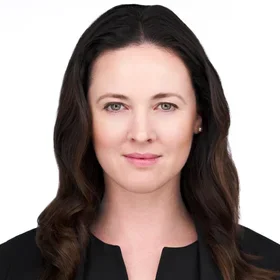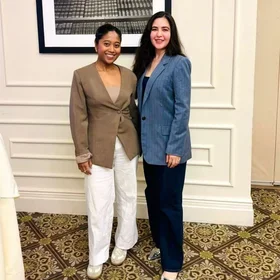What brought you to the Narrative Medicine program?
I went to college at Harvard, and I was set to graduate in 2010 with degrees in Film Studies and Health Policy. My plan had been to go straight to medical school, but during my senior year, I read an article in The New York Times called “Learning to Listen.” That article really opened my eyes to the world of Narrative Medicine, Dr. Rita Charon's work, and the work they were doing in the Master of Science program putting the humanities in conversation with clinical medicine. For the first time, I felt like someone had triangulated all of my interests in the humanities with my career aspirations in medicine, and gave me the language to talk about the ways in which they intersect.
What did you feel was most valuable for you in the Narrative Medicine program?
The most valuable part of the Narrative Medicine program was definitely the community. Beyond the year I spent in the program, I have found that my classmates have become my colleagues and my collaborators. In medicine, there are certainly people who are invested in the medical humanities and the interdisciplinary aspects of doctor-patient relationships, but it often feels like an afterthought. I feel a much deeper connection to the people I met in the program because narrative is central to our approach to medicine, rather than secondary to it. In this community I feel like I have access to a broader conversation than what I get exposed to in medical school.
Narrative Medicine really enriched my time in medical school.
Can you tell me about your experience in medical school?
I am graduating from medical school at the University of Virginia in May. I was actually supposed to graduate last year with the class of 2015, but I took a year off to be a producer for the Dr. Oz Show. I returned to medical school, and I decided to pursue a career in psychiatry because this specialty is a natural extension of my interest in narrative. It will really give me an opportunity to exercise all the ways I’ve learned to listen.
I found out on Match Day that I’ll begin my residency training at Cambridge Health Alliance in Boston!
Narrative Medicine really enriched my time in medical school, which can be a very corrosive experience. You see and feel a lot of really intense things and you don't always have time or healthy ways to digest those events. I think Narrative Medicine gave me an outlet; I often turned to writing to digest some of the positive and negative experiences that have happened to me throughout my training.
When you say that Narrative Medicine helps you process experiences, what do you mean, specifically?
Narrative Medicine has given me permission to seek stories to deepen my understanding and appreciation for my profession. It has been a useful exercise in imagination that allows me to step outside of the obvious obstacles and think more broadly about my role as a physician-in-training.
For example, last summer, I spent some time at the Hazelden Betty Ford Foundation rehabilitation facility in Minnesota through a medical student immersion program. I was curious about the lived experiences of people who suffer from addictions and the ways that they remain hopeful in their treatment. I wanted to learn more about this patient population because, in certain clinical settings, those patients are a source of a lot of frustration for people in the medical field. If a patient with liver failure is suffering from alcohol abuse, they may show up in the ER with a variety of pathologies that stem from their addiction. Doctors use all the resources at their disposal to help them, but the next day, the patient comes right back to the hospital intoxicated again. In moments of frustration, I've heard medical providers say mean things about these patients.
Medical education is essentially apprenticeship where medical students model the behavior of the doctors that teach them. It's disconcerting to see the people responsible for your education say terrible things about the patients that frustrate them. I often asked myself what I was supposed to learn from these interactions. I see these doctors really trying hard to serve patients who make them feel helpless and ineffectual. I understand where they're coming from, but it was hard to reconcile with my knowledge of the patients I’d met at the Hazelden Center. Both doctors and patients in this situation are human beings who struggling in different ways. My narrative training helped me synthesize these experiences. I wrote a reflection paper about witnessing both sides of the an incredibly complex doctor-patient relationship.
Is there anything else you wanted to add about the Narrative Medicine graduate program?
Over the past couple of years since I graduated from the graduate program, a number of students have found me online and have reached out to me asking about it. They often ask, “What do I do with a degree in Narrative Medicine?” The number one thing I tell them is that there is no specific job for people who have been trained in Narrative Medicine. It's a very entrepreneurial and innovative endeavor – you have to have a strong sense of who you are and what you want to accomplish, and Narrative Medicine will not only bolster your goals, but also broaden your bandwidth to accomplish it. For me, that has always been a career in medicine. As a doctor-in-training, it provides me with a really strong community of collaborators who challenge me to think holistically and empathically, because that's what Narrative Medicine is all about.
Learn more about the M.S. in Narrative Medicine.


